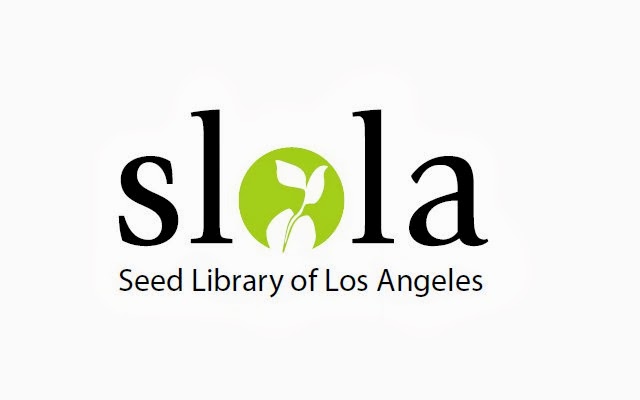 |
| Some seeds on display at the Seed Matters booth, Heritage Seed Festival |
I
have been a proud supporter of the Organic Seed Alliance for
several years. While there are many good reasons, including their blog, and their numerous publications, one of the most pressing concerns they have a clear focus on, his the lack of organic seed available to growers everywhere. It
is an acknowledged problem to the extent that organic certification
allows a farmer to remain certified even if she doesn't use organic
seed, if she cannot find organic seed for her crop.
Few
home gardeners face this problem because organic seed is usually
available in the small quantities we use. Farmers though, think in
terms of "pounds of seed" vs. "grams of seed" that most of us are familiar with. This is where the hoeing
gets tough because those large quantities of seed are available, if at
all, at a premium price. But the problem is much more systemic than
meets the eye.
Not
only is there a dearth of organic seed, there is a dearth of new
varietals being developed by and for organic growing. You can buy
organic Big Boy Tomato Seed (don't, by the way, its patent is owned
by Monsanto), but it was bred to be grown in a chemical environment. Big Boy will most likely only reach its full potential if coddled
with chemical fertilizer and protection from insects because that is
the environment where it was created and it was 'designed' to
co-exist with all that petroleum-based help. Big Boy and most of the
modern hybrids assume you will spray insecticides and add copious
amounts of nitrogen to your garden. Like buying a car that only runs
on premium fuel and filling it with regular, you are asking for trouble to ask a modern hybrid to perform in an organic garden.
We
need more organic seed producers. Many, many more. OSA has seminars (including one near Ojai in November) teaching organic farmers how to become seed producers. And they have
seminars on breeding plants predisposed to growing in an organic
environment.
It
is not necessary to sit on the side line and contemplate this
problem. Remember, all the great varietals that fed mankind through the 1950's, including some of the most prized varieties of the
modern age, were bred by people not unlike you and me. I could tick
of a list of twenty or thirty varieties that were bred by folks who
had no degree in agriculture – and a couple that didn't even finish
high school.
In this vein, already, the Seed Library of Los Angeles has begun to
find ways to contribute some plant breeding as well as seed saving to
the community. Several projects are currently growing in members' gardens to
improve a few breeds and, in one of special note, taking a hybrid
and patiently growing it out over several seasons to find similar
eating qualities in a non-nybrid form. So far from that, we have the
original and two other very promising varieties coming from the same
planting. It's very exciting. More will be revealed in the coming years - it will take some patience!
You
know, oftentimes the focus of SLOLA members and this blog is very often only on the how and why of seed saving and saving these
wonderful varieties for future generations. It dawns on me, that this is not our real purpose. Our real purpose is growing
a new kind of gardener who will take responsibility to steward our
precious seeds for the future. While we do this and we talk around
it, I think we fail to acknowledge that this is what we are really
growing. I would like to appoint someone “Goddess of Direction”
(could be a God too, I'm not going to discriminate!) to tap board
members on the shoulder from time to time and say: “Your real job
is to educate and grow gardeners.”
Like
all our positions, it is unfunded. I'll be accepting applications until the next SLOLA meeting...
david
OSA just announced the launch of a new Organic Seed Database a free online tool for anyone hoping to find organic seeds. Going online October 01, 2012 at www.organicseedfinder.org the seed finder will facilitate connecting growers with seed suppliers - as noted above, finding organic seed can be an obstacle for organic growers. One more time Organic Seed Alliance has shown leadership in solving these problems. I am proud to be one of OSA's supporters.
OSA just announced the launch of a new Organic Seed Database a free online tool for anyone hoping to find organic seeds. Going online October 01, 2012 at www.organicseedfinder.org the seed finder will facilitate connecting growers with seed suppliers - as noted above, finding organic seed can be an obstacle for organic growers. One more time Organic Seed Alliance has shown leadership in solving these problems. I am proud to be one of OSA's supporters.

No comments:
Post a Comment